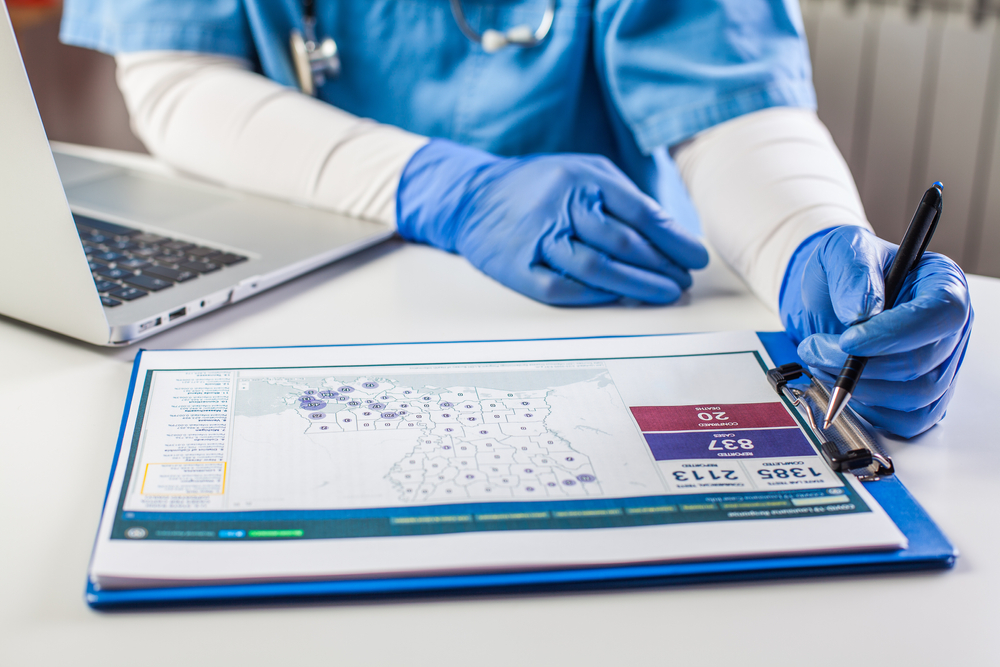Maintaining public trust in use of Big Data for health science
2 August 2018
In a comment piece published today for The Lancet Oncology, one of the world’s premier cancer journals, a collaborative team of international researchers outlines the imperative for maintaining public trust in the use of health data for research.
The comment piece follows recent discussions in the mainstream media about data privacy. Led by Mark Lawler, Chair in Translational Cancer Genomics at Queen’s University and Associate Director at Health Data Research UK, and an active member of the Global Alliance for Genomics and Health (GA4GH), the authors urge the health science community to talk more openly about using personal health data in research to enhance human health and eradicate diseases such as cancer.
The authors cite several national and international initiatives – including The Global Alliance for Genomics and Health (GA4GH) and the UK’s 100,000 Genomes Project – that depend upon comprehensive data analytics to drive evidence-based solutions to improve health outcomes.
Professor Lawler said:
“Personal health data is an extremely valuable commodity for research and should only ever be used in a responsible, ethical and secure way that is in the interest of society. Transparency on why and how we use data is vital if we are to maintain the social licence for data-driven research.”
Approaches to build public trust and restore confidence in use of health data are outlined in the comment piece, entitled: A roadmap for restoring trust in Big Data. These include:
- Putting citizens at the heart of decision making; communicating openly about what happens to data, who is using it, and what level of control people can, or cannot, expect;
- Applying ethical rigour every time data is used, shared or transferred to safeguard individual privacy, and;
- Ensuring data is secure and provide guarantees that data will not be compromised by breaches that reveal personal information.
Anna Middleton, Head of the Society and Ethics Research Group, Connecting Science at the Wellcome Genome Campus in Cambridge, UK and a co-author of the study said:
“Public trust in data science is essential for large scale initiatives like these to deliver on their promise to enable significant breakthroughs in our understanding of human disease.”
Middleton also chairs the GA4GH Participant Values Task Team, which is leading a project to gather public attitudes towards genomic data sharing via the online survey, Your DNA, Your Say.
Professor Bartha Maria Knoppers, Director of the Center for Genomics and Policy at McGill University, co-chair of the GA4GH Regulatory and Ethics Work Stream, and co-author on the paper commented:
“While public confidence in data security and integrity has recently come under scrutiny, this did not include the field of health data. It is important to emphasise the benefits of international data sharing and underscore the responsible frameworks put in place by scientists themselves to guard against possible misuse.”
Examples of existing frameworks and initiatives that are supporting the research community in its use of health data are highlighted. One of these is the GA4GH Framework for Responsible Sharing of Genomic and Health-related Data which contains foundational principles and core elements for responsible data sharing and is guided by human rights, including the right to benefit from the progress of science, as well as privacy, non-discrimination, and procedural fairness.
Health Data Research UK, which was also involved in the piece, develops and applies cutting-edge data science approaches to clinical, biomedical and other multi-dimensional data to address the most pressing health challenges facing the public. It uses safe principles – safe people, working on safe data, in safe places, with safe outputs – to establish a robust research and governance infrastructure that is necessary for the analysis of big data and, importantly, to secure trust.
Understanding Patient Data is an independent patient data task-force that is enabling better conversations about the uses of health information through its work with patients, charities, and healthcare.
Professor Lawler concludes:
“Public confidence in how data is used has been significantly compromised in recent months. It is incumbent on all of us to advocate the value of health data research to society and to promote the need for robust, trustworthy and ethical approaches to deliver new health advances for our citizens.”
You can read the original article here
-Ends-
Notes to Editors
- Media inquiries to Sian Devlin at Queen’s University Communications Office T; +44 (0)28 9097 5292 E: s.devlin@qub.ac.uk.
- Professor Mark Lawler is available for interview. Bids to Sian Devlin at Queen’s University Communications Office T; +44 (0)28 9097 5292 E: s.devlin@qub.ac.uk.
- Full details of the piece are published here: https://www.thelancet.com/journals/lanonc/article/PIIS1470-2045(18)30425-X/fulltext



